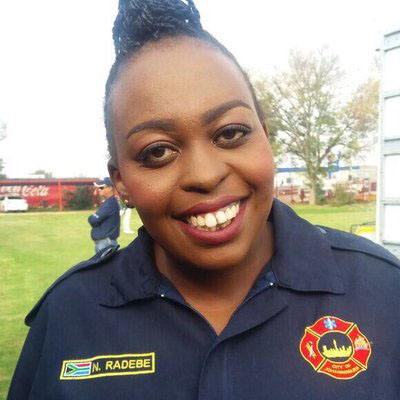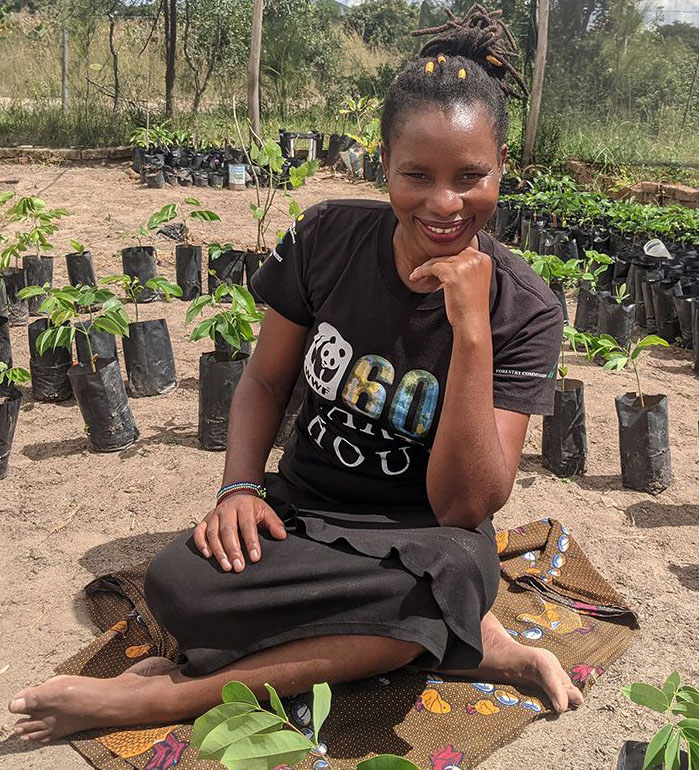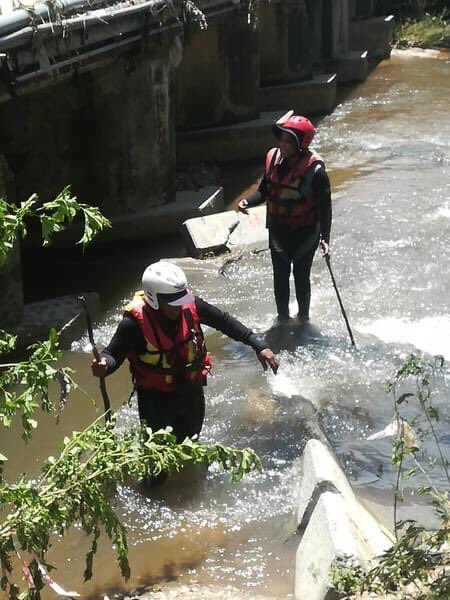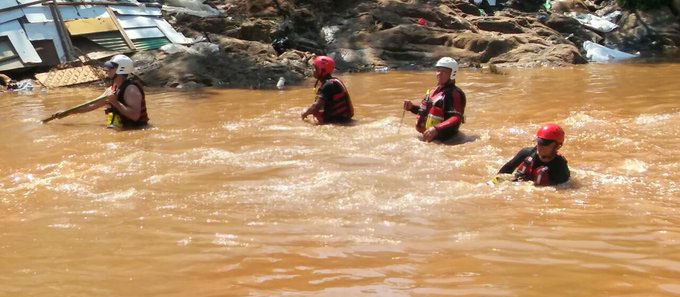Climate change is intensifying river flooding across South Africa. For indigenous Christian churches that conduct unlicensed, open-river baptisms, tragedies are mounting too.
Nomusa Bandile lost a teenage daughter Dec. 7 when, during an open-river baptism by an unlicensed pastor, 14 congregants were swept to their deaths by flash floods. The death toll now has risen to 15.
“Our so-called pastor is now on the run, what a cruel fraudster,” Bandile said, weeping, telling Baptist Global News of a tragedy that occurred in the Jukskei, one of the largest rivers that meander through inner-city Johannesburg, South Africa’s commercial capital.
This is not the first tragedy of a similar nature across South Africa in recent years. There is a growing toll of worshippers losing their lives during flash floods that are now making open-river baptisms deadly. In December 2021, floods swept away a 21-year-old priest and a 41-year-old woman whom he was baptizing in the Free State, in central South Africa. On the last day of 2022, three more people drowned during a river baptism ceremony gone wrong in Soweto, the most populous Black township in South Africa.

Nana Radebe
“Fatalities reported and unreported when river baptisms turn lethal are quite high in recent years,” said Nana Radebe, spokesperson for the Johannesburg City Emergency Services. Open-river baptism rituals, especially by untrained clergy who head Africanist Christian churches, are running into a fast-changing climate in South Africa.

Shamiso Mupara
“Flash and sustained floods are a new phenomenon of a changing climate in South Africa. They didn’t occur with ferocity before. For unlicensed churches where unlicensed pastors do open-river baptism rituals without advance weather safety drills, deaths will triple,” warned Shamiso Mupara, a prominent climate expert and past delegate to United Nations COP climate summits.
A World Weather Attribution Service study said extreme rains that sparked one of the deadliest ever floods in Durban, eastern South Africa, in 2022 — claiming 400 lives at once — were not normal, a sure sign that South Africa is getting wetter due to the climate crisis. In December, 269 structures, including roads, were uprooted; hundreds of residents were affected after intense rains and floods, which used to be rare, descended upon Johannesburg.
Unlicensed pastors running informal churches in South Africa get paid lucrative amounts to conduct open-river baptisms, taking advantage of poor worshippers who think baptism consultations could change their fortunes. BNG previously reported on a phenomenon in South Africa, where because of the world’s highest joblessness, the pastorate is now seen as a lucrative way to earn money and use all tactics like “miracles” or “baptisms” to squeeze money from congregants.
 “It’s a stain. I am aware some of these pastors charge up to $50 per congregant to conduct baptism rituals in ferocious open rivers in violation of municipal safety bylaws,” said Tendai Muchatuta, pastor and leader of the Africanist independent All Nations Church in Johannesburg. “The congregants think getting baptized in December will heal them of ailments like joblessness, HIV or poverty. December is the wettest month in South Africa; how irresponsible is that to do unsafe baptisms.”
“It’s a stain. I am aware some of these pastors charge up to $50 per congregant to conduct baptism rituals in ferocious open rivers in violation of municipal safety bylaws,” said Tendai Muchatuta, pastor and leader of the Africanist independent All Nations Church in Johannesburg. “The congregants think getting baptized in December will heal them of ailments like joblessness, HIV or poverty. December is the wettest month in South Africa; how irresponsible is that to do unsafe baptisms.”
As the climate crisis heaps unusual rain across South Africa and deepens the flood menace, observers say a meeting of minds is needed between thousands of untrained pastors and urban municipal emergency authorities.
“The climate emergency gospel must be explained in understandable terms to unlicensed pastors and their congregants. The link between flood deaths and open-river baptism must be explained by cities’ emergency managers,” said O’Brien Nhachi, a social scientist and climate campaigner. “Worshippers don’t have to die by baptisms.”
The pastor behind the latest tragedy of the Jukskei River baptisms has gone to ground as the death toll climbed to 15, but Nomusa Bandile says the closure is hard for her. “I’m not that educated. I’d have not gone to a river baptism in December if I was informed that the climate is bringing more dangerous rains into South Africa.”
Related articles:
As joblessness rocks South Africa, fake pastor diplomas are in demand
GenZ South Africans remix tech, African spiritualism and church

